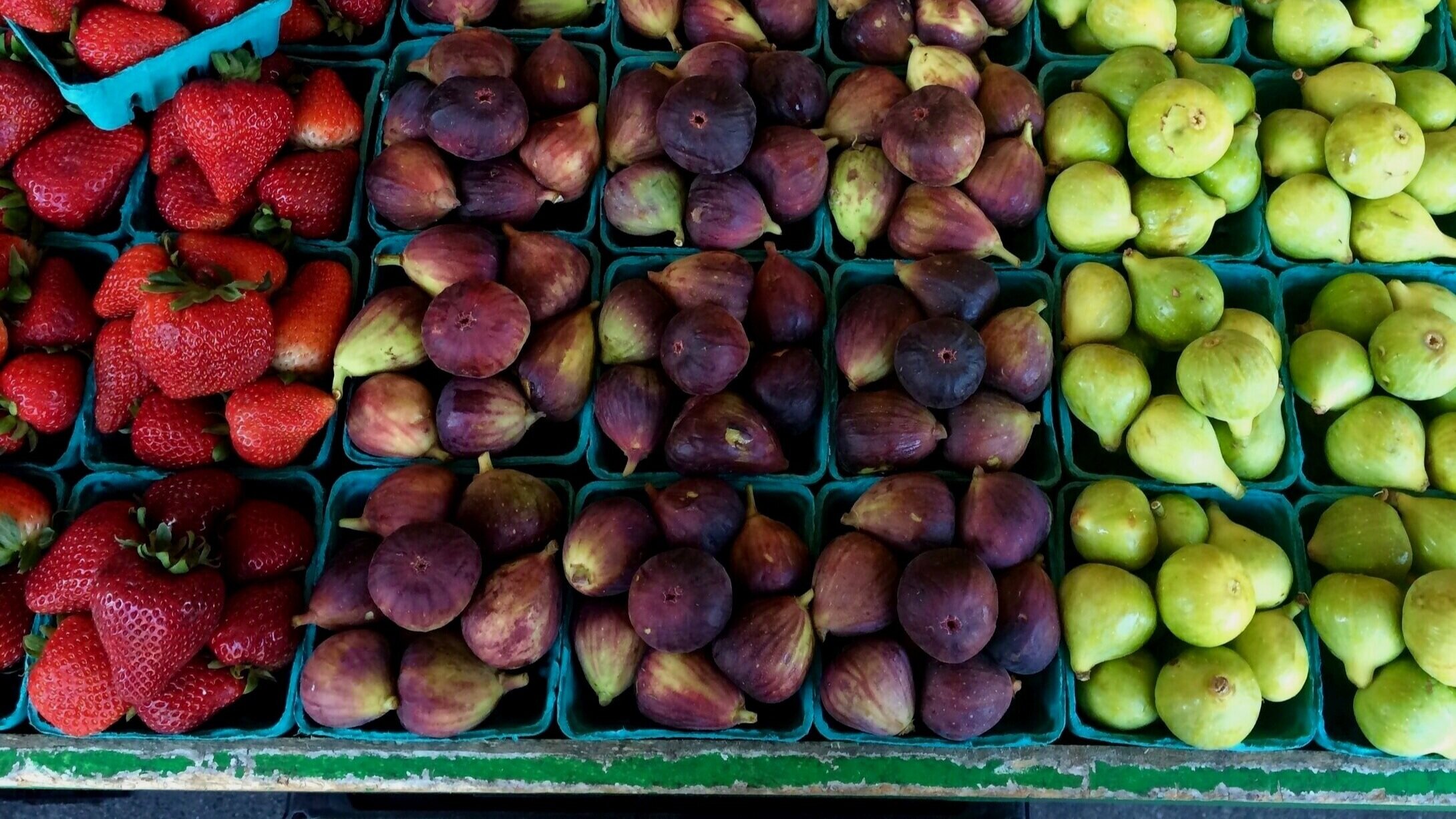
Tachles: This is Israeli slang that means “to the point.” If you are trying to simplify something for someone, you might use “tachles” to explain it in short.
FAQs
What can I expect from a Study Abroad program?
The GCI Flagship Program offers students endless opportunities to connect with people that they may never otherwise have come across to experience life and passion through food and to taste life through culinary experiences, cultures, and shared connections over food. Expect a whole new way of approaching life through business success stories and mentors, through internships and opportunities, and an entire environment of motivation, food passion, creativity, and culinary flexibility.
Who is this program right for?
Are you always up for a challenge? Are you the kind of person who loves the culinary arts, but also business and creating opportunities? This program is for the individual who refuses to accept traditional education. It is for the doer; a person who wants more, and who is always looking to go deeper into culinary skills but at the same time, do it at an accelerated speed. It’s for the student who is hungry for more opportunities, hungry to experience culinary hands-on, hungry for new cultures, and hungry to learn the ins and outs of everything culinary. A few words we would use to describe someone who we believe is a good fit for this program – ambitious, passionate, self-motivated, doers, makers and dreamers.
Why the Galilee?
Because it is the only place on earth as unique and special as the institute itself. The GCI Rosenfield School of Culinary Arts is based in the North of Israel where the connection to the land plays a historic and important role. To honor this, the GCI has its own farm and collaborates with other local farmers to learn from and share knowledge.
The GCI is in the heart of Israel’s booming tech and innovation center. A part of the curriculum is focused on the most pressing issues in the food world such as labor, food insecurity, equity and resource access.
The third element is the incredible cultural diversity represented in Israel. The combination of the rich and lush land, plus the innovation, plus the human element of more than 80 ethnicities makes this a life-changing experience.
Why JNF?
Jewish National Fund is developing the Upper Eastern Galilee and the greater Kiryat Shmona area to become a hub for food businesses, including technology, business management, cooking, restaurants, food and agricultural research and development, hospitality, and hotels. At the core of this investment is the Galilee Culinary Institute, which will transform the region into a global culinary and hospitality center of excellence. This will become the backbone for increased economic development, employment, tourism, housing and community building to ensure steady and continued growth for years to come.
Will a Kosher facility decrease my ability to be successful in the long term?
Not at all. The skills that you acquire at a kosher facility go way beyond traditional, many times really leading you to redefine your needs and to think creatively around food. Every restriction is an opportunity. Our students will be able to roll with the punches and changes and have more sensitivity towards allergies, food issues, and more. Those who are not Kosher will benefit from the discipline learned around food handling and storage. On this topic, we sought input and advice with numerous culinary experts, each noted that kosher would not impact a learners ability to be successful in culinary no matter what area they choose to pursue.
I do not speak Hebrew. Will there be language barriers?
None. The Flagship Program will be conducted in English. Although we do have plans to expand to Hebrew and Arabic in the future!
It is important to understand that some excursions to explore the local craftsman may mean interacting with people who only speak their native language. When this is the case, there will be plenty of people who can help you understand and translate.
Why this program vs. a traditional culinary school and what is the added value of knowing how to network, create content, social media, and acquire business strategies?
Traditional culinary has had a huge impact on the way we eat and enjoy food. In the last decade, a new rise and love for culinary has changed the way we view food and cultures. But, COVID-19 has changed the way we dine - and it will never be the same. The restaurants that thrived during the pandemic where the ones that could quickly pivot, adapt and think critically. These concepts are integral to the GCI – even before COVID, our vision was to bring a new way of educating students about how to be successful in today’s culinary world. We expect our learners to leave the GCI with a full tool box vs. just one skill. Culinary technique for sure, but also social media, brand-building, marketing and a deep understanding of the finances behind running a successful culinary operation.
Why not traditional French cuisine? Why be exposed to dozens of cuisines that might not be known in the modern culinary world?
We believe that many of the most important basics come from traditional French cuisine and we will learn all the basic skills and honor the traditions that built culinary. But, in addition to that we value a sense of curiosity and a multicultural approach to culinary that can be found with all the incredible cultures that are in and around the Galilee. From Druze nomadic cuisine to Moroccan and Algerian spices, to cuisines that can be only found in Israel such as Akko. The GCI learner benefits from a focus on culinary foundations of sauces, herbs and fire. This is in stark contrast to traditional French culinary teachings that focus on pasta and specific sauces.
How will the DNA of Moshav and kibbutzes in the area affect the way we learn?
A kibbutz, known as clustering or gathering, is a collective community that was traditionally based on agriculture. The first kibbutz, Degania, was established in 1909 and up until a few decades ago, the kibbutz was based on utopian communities, where everything was shared -even earnings. Though kibbutzes have evolved they have principals that make up a lot of the culture and they are huge opportunities for learning.
As a hub for agriculture and building entire communities from the bottom up, the Kibbutz culture will be able to teach our students the basics of farming, agriculture and working with the fruits of the land.
A Moshav is a type of Israeli town, particularly a type of cooperative agricultural community of individual farms. Again, with such building blocks and principles, there are so many benefits to understanding how to work, grow and interact with food on a communal level. The students will visit kibbutzes and moshavs and interact with the people who know how to live and breathe agriculture, farming, and community.
How can I learn to network and build my own personal brand?
At GCI, one of the most important aspects to us is to enable you to make lasting connections and meet people who will inspire you on all fronts. We will have lots of networking opportunities and conversations with some of the best in the food world who will inspire you as well as become lifelong connections.
How much does this school cost?
For the inaugural class, the GCI is offering a special introductory tuition rate of $36,000 USD including room & board. Students invited to participate in the first class will be housed in a beautiful dorm room at the Institute. Travel to the GCI and any excursions while attending school will require additional funds.
The GCI will be offering scholarships and financial aid. You need not be Jewish to apply to the program, or to the scholarship opportunities. Learners will also have the ability to secure tuition funds through our relationship with the non-profit organization JNF.
Can you tell me more about this school?
Galilee Culinary Institute by JNF is a first-of-its kind culinary learning experience. The concept was developed and brought to fruition by some of today’s most innovative chefs and educators who seek to expand the definition of culinary education. The flagship program is 12-months, but packs more than two years of education into the program through a total immersion approach with experiences inside and outside of the classroom.
Are you accepting new students?
The GCI pre-application process, for our 2024, inaugural class, is now open and remains open until student selections are finalized in mid-2024. Rolling admissions will continue for students pre-applying for the 2nd cohort, which is scheduled to begin in May of 2025. Students wishing to apply for the 2nd cohort can still begin the pre-application process at any time.
At the conclusion of each cohort’s pre-application process, GCI will be inviting a select group of applicants to the formal application process. Applicants will be accepted to the program based on their alignment with GCI’s vision for our total immersion program. These students will join as active participants who will help shape the character and context for their semester.
Students who apply to the inaugural class but are not selected due to limited class size will be given the opportunity to join the 2nd cohort.



